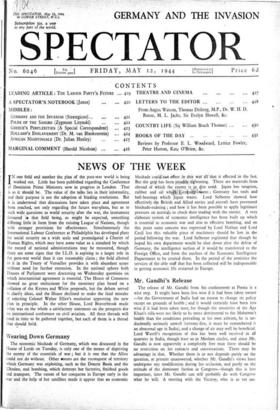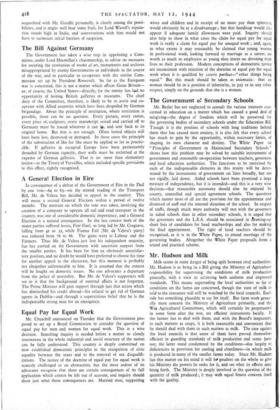Mr. Gandhi's Release The release of Mr. Gandhi from his
confinement at Poona is a wise step. It might have been less wise if it had been taken sooner —for the Government of India had no reason to change its policy except on grounds of health ; and it would certainly have been less wise if it had been taken later, for though the amenities of the Aga Khan's villa were no: likely to b.: more detrimental to the Mahatma's health than the conditions prevailing at his own ashram, he is un- doubtedly seriously unwell (seventy-five, it must be remembered is an abnormal age in India), and a change of air may well be beneficial. Lord Wavell's recognition of this has been well received in all quarters in India, though least so in Moslem circles, and since Mr. Gandhi is now apparently a completely free man there should be no restriction on his contacts and conversations. There may be advantage in that. Whether there is or not depends partly on the question, at present unanswered, whether Mr. Gandhi's views have undergone any modification during his seclusion, and partly on the attitude of the dominant faction in Congress—though this is less important, since Mr. Gandhi can still probably do with Congress what he will. A meeting with the Viceroy, who is as yet un-
acquadited with Mr. Gandhi personally, is clearly among the possi- bilities, and it might well bear some fruit, for Lord Wavell's reputa- tion stands high in India, and conversations with him would not have to surmount initial barriers of suspicion.



























 Previous page
Previous page